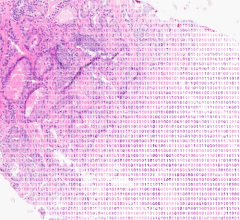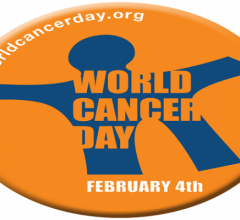June 30, 2008 - Scientists at Wake Forest University Baptist Medical Center said they are starting a human trial to test whether a new cancer treatment will be as effective at eradicating cancer in humans as it has proven to be in mice.
The treatment will involve transfusing specific white blood cells, called granulocytes, from select donors, into patients with advanced forms of cancer. A similar treatment using white blood cells from cancer-resistant mice has previously been highly successful, curing 100 percent of lab mice afflicted with advanced malignancies.
Zheng Cui, Ph.D., lead researcher and associate professor of pathology, announced the study June 28 at the Understanding Aging conference in Los Angeles.
The study, given the go-ahead by the FDA will involve treating human cancer patients with white blood cells from healthy young people whose immune systems produce cells with high levels of cancer-fighting activity.
The basis of the study is the scientists' discovery, published five years ago, of a cancer-resistant mouse and their subsequent finding that white blood cells from that mouse and its offspring cured advanced cancers in ordinary laboratory mice. They have since identified similar cancer-killing activity in the white blood cells of some healthy humans.
"In mice, we've been able to eradicate even highly aggressive forms of malignancy with extremely large tumors," Cui said. "Hopefully, we will see the same results in humans. Our laboratory studies indicate that this cancer-fighting ability is even stronger in healthy humans."
The team has tested human cancer-fighting cells from healthy donors against human cervical, prostate and breast cancer cells in the laboratory - with surprisingly good results. The scientists say the anti-tumor response primarily involves granulocytes of the innate immune system, a system known for fighting off infections.
Granulocytes are the most abundant type of white blood cells and can account for as much as 60 percent of total circulating white blood cells in healthy humans. Donors can give granulocytes specifically without losing other components of blood through a process called apheresis that separates granulocytes and returns other blood components back to donors.
In a small study of human volunteers, the scientists found that cancer-killing activity in the granulocytes was highest in people under age 50. They also found that this activity can be lowered by factors such as winter or emotional stress. They said the key to the success for the new therapy is to transfuse sufficient granulocytes from healthy donors while their cancer-killing activities are at their peak level.
For the upcoming study, the researchers are currently recruiting 500 local potential donors who are 50 years old or younger and in good health to have their blood tested. Of those, 100 volunteers with high cancer-killing activity will be asked to donate white blood cells for the study. Cell recipients will include 22 cancer patients who have solid tumors that either didn't respond originally, or no longer respond, to conventional therapies. The study will cost $100,000 per patient receiving therapy, and for many patients (those living in 22 states) the costs may be covered by their insurance company. There is no cost to donate blood.
General information about insurance coverage of clinical trials is available at the American Cancer Society's web site.
For more information: www.wfubmc.edu/news/CancerTrial


 September 07, 2023
September 07, 2023 






